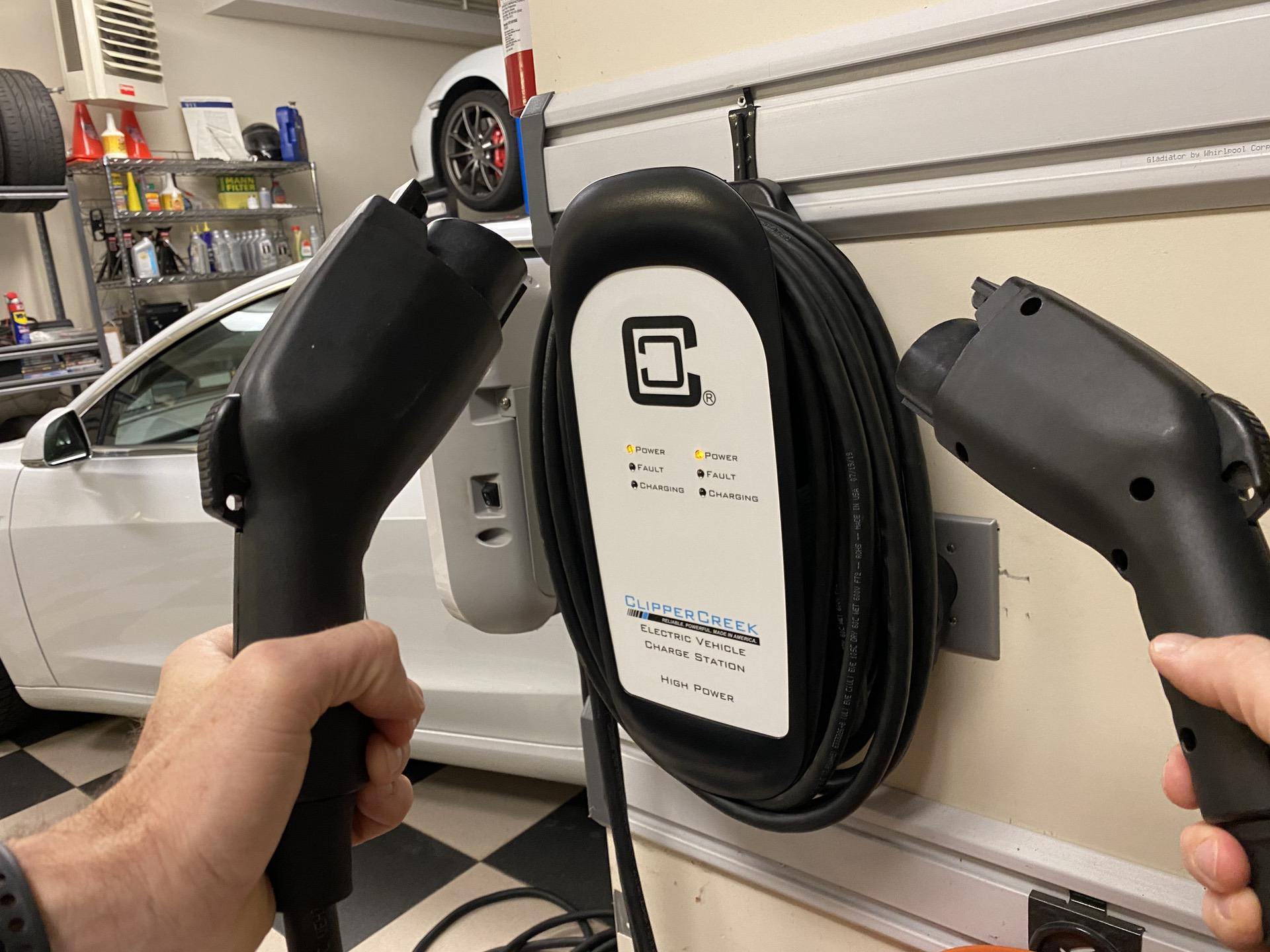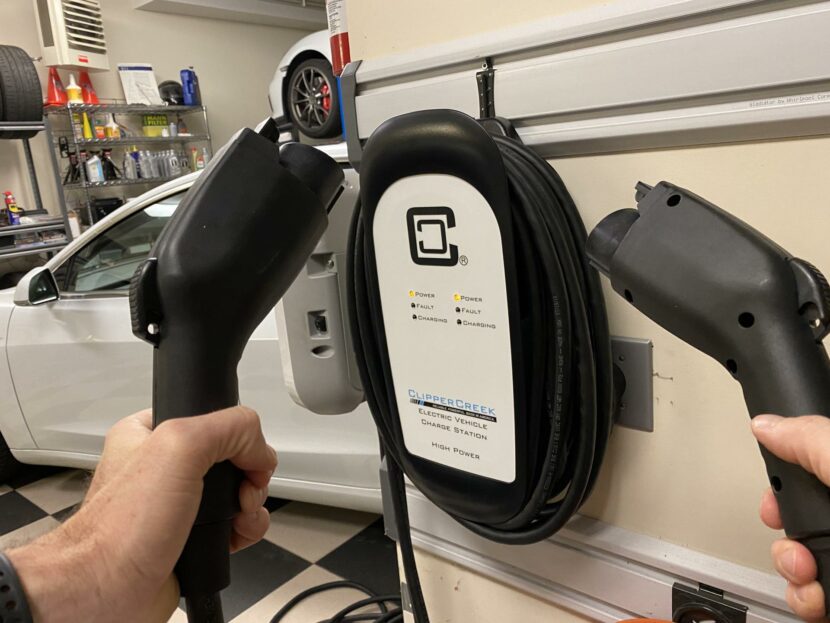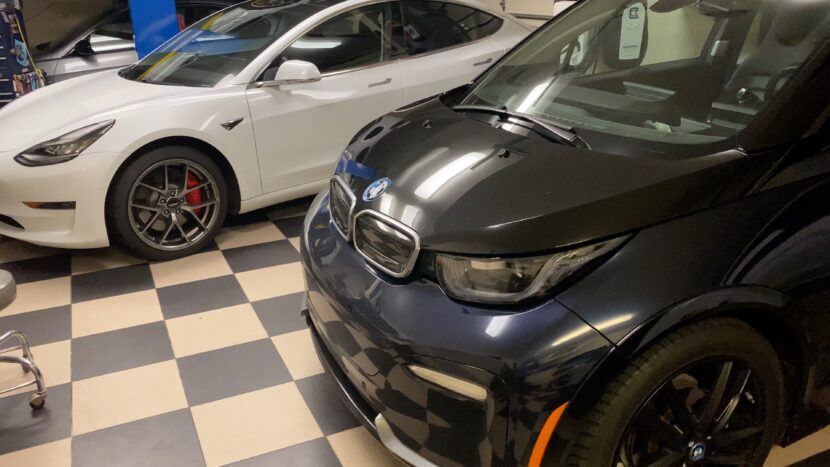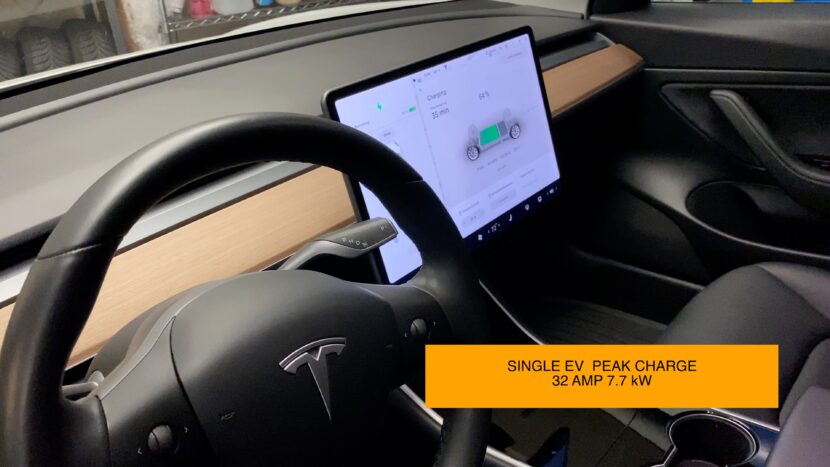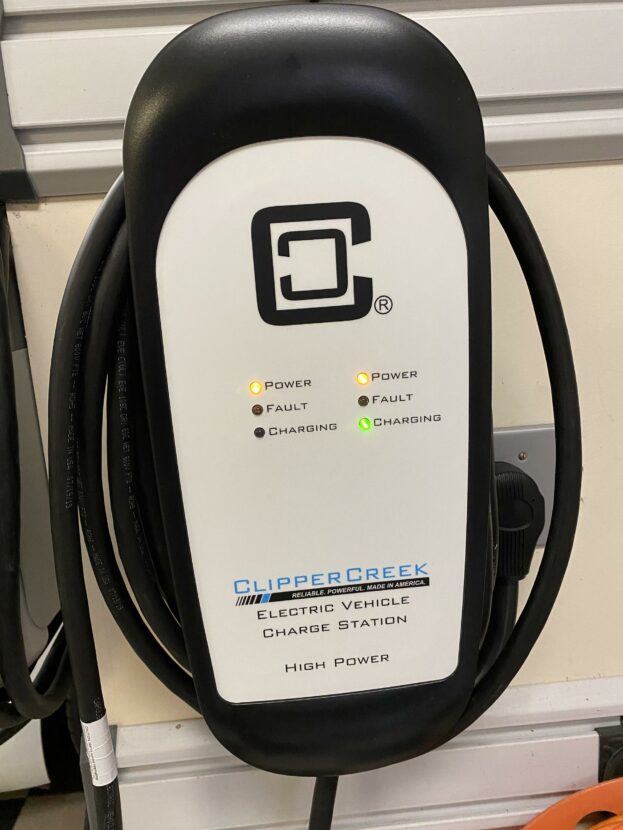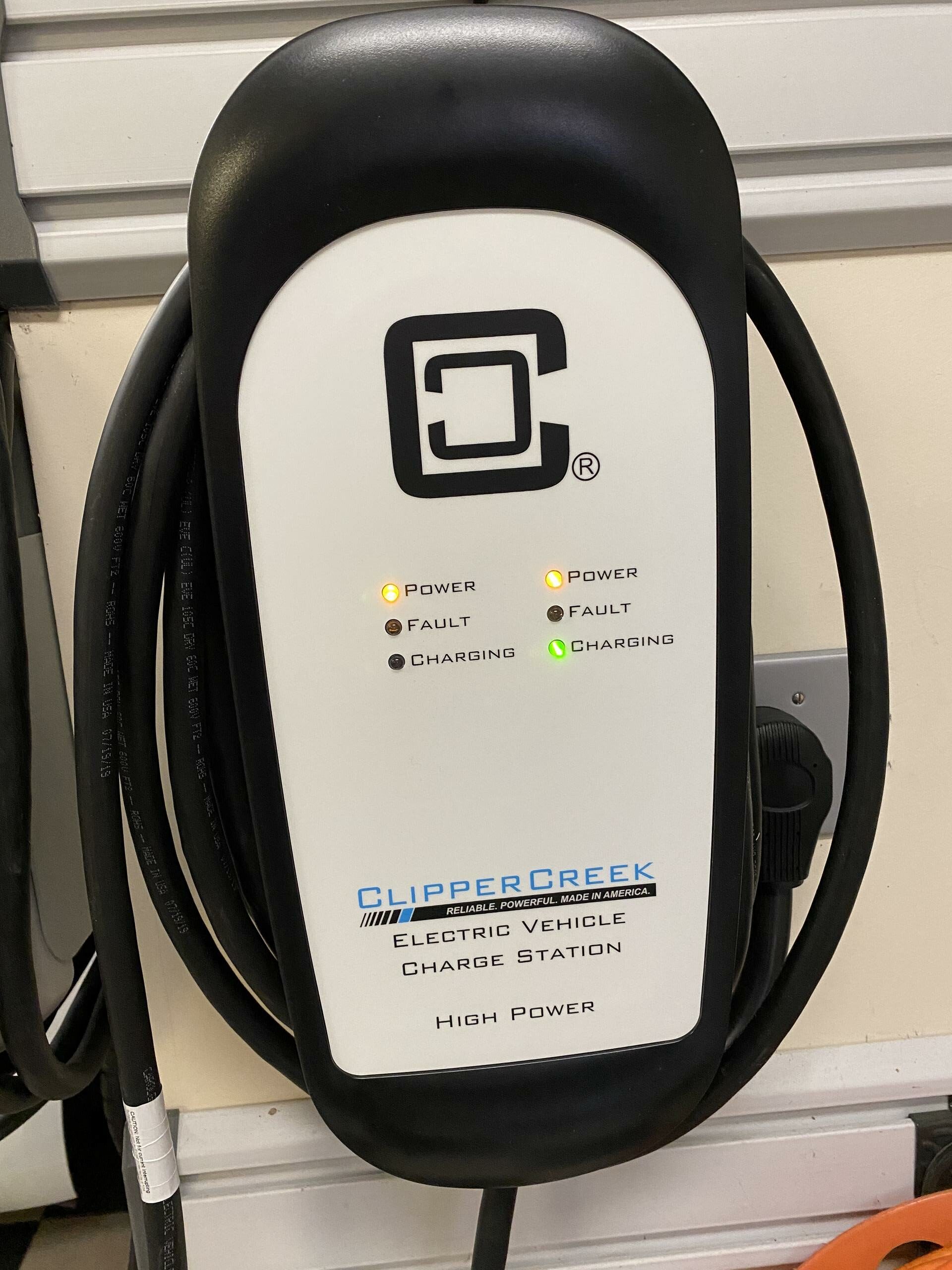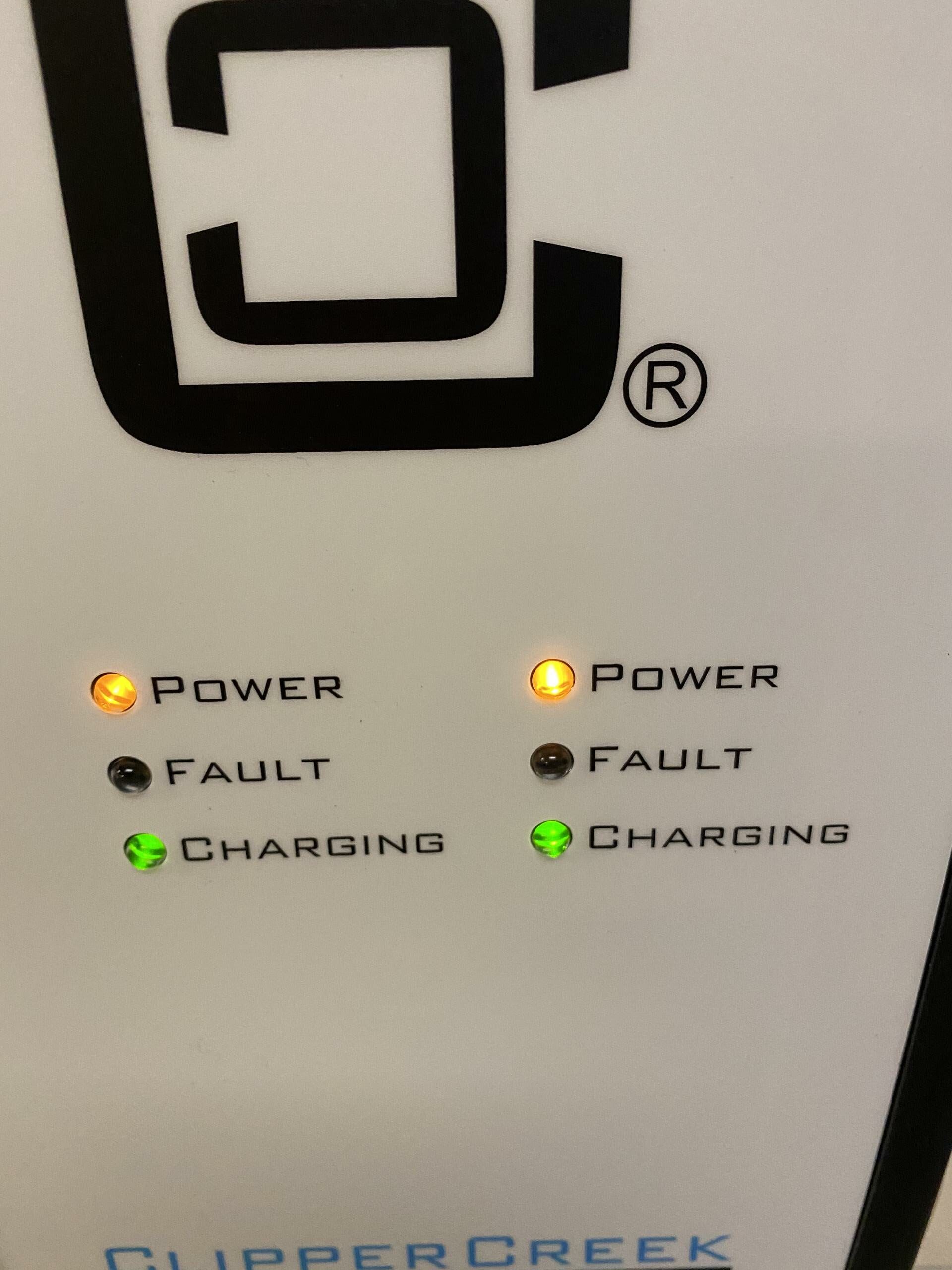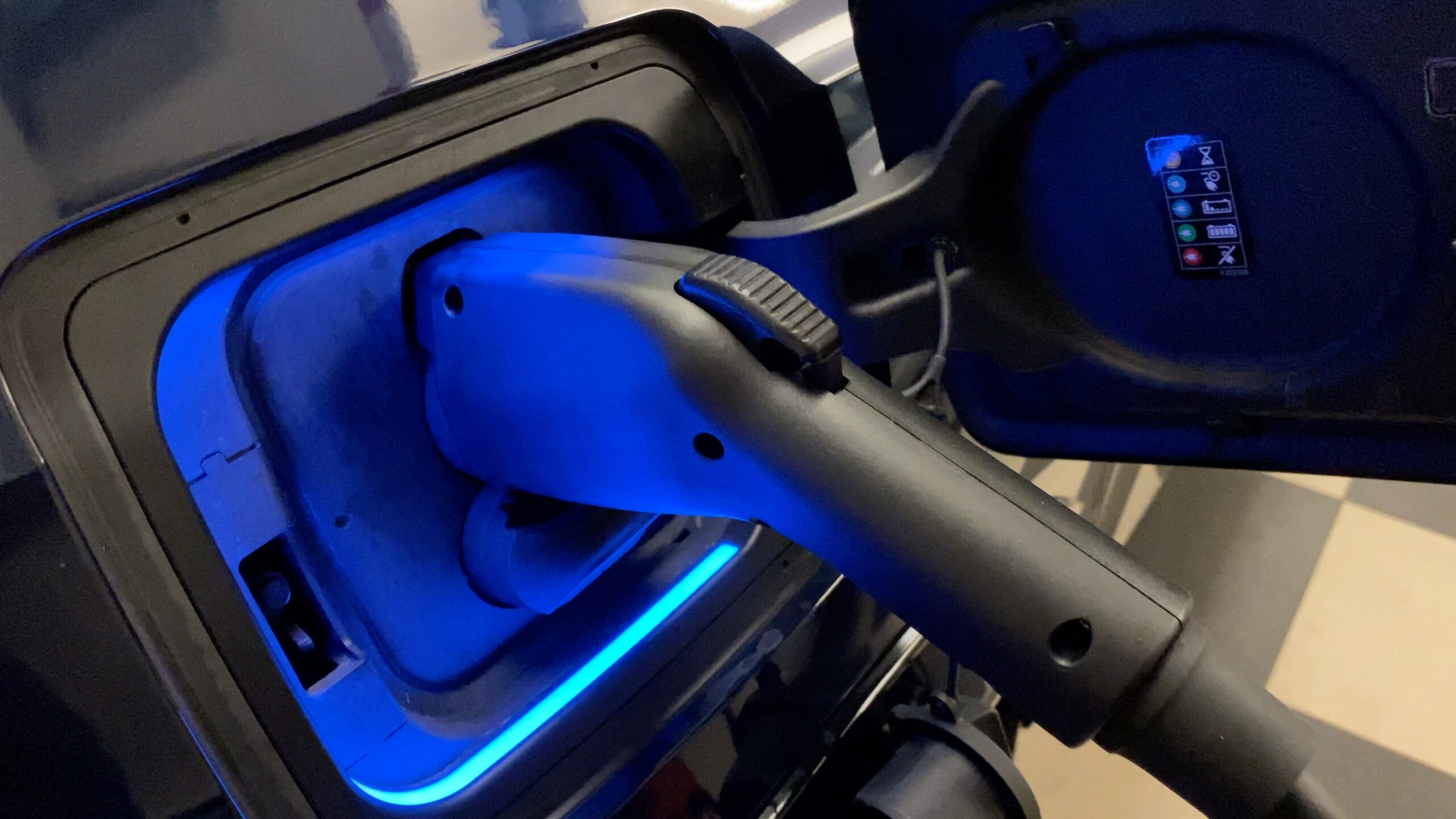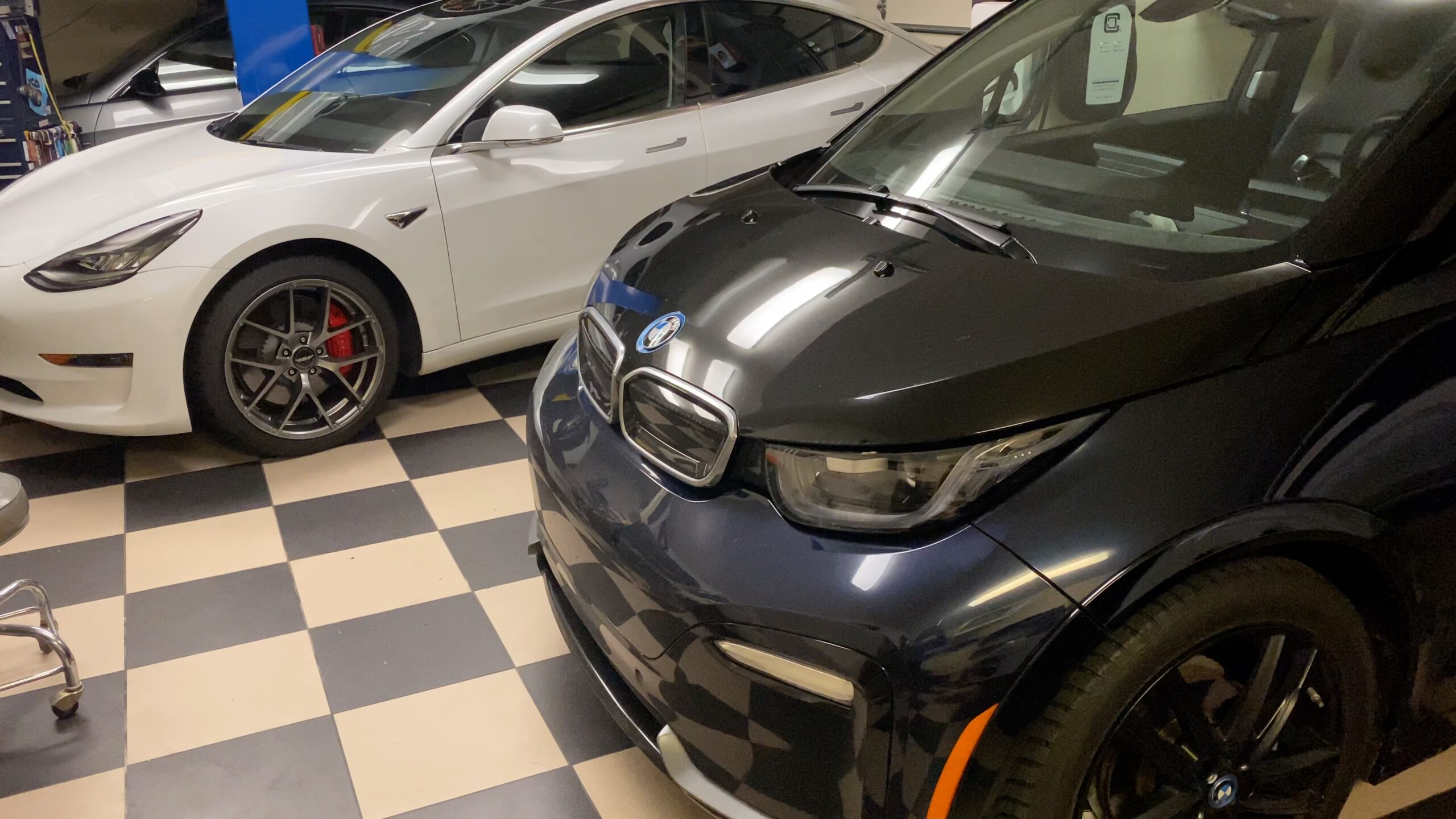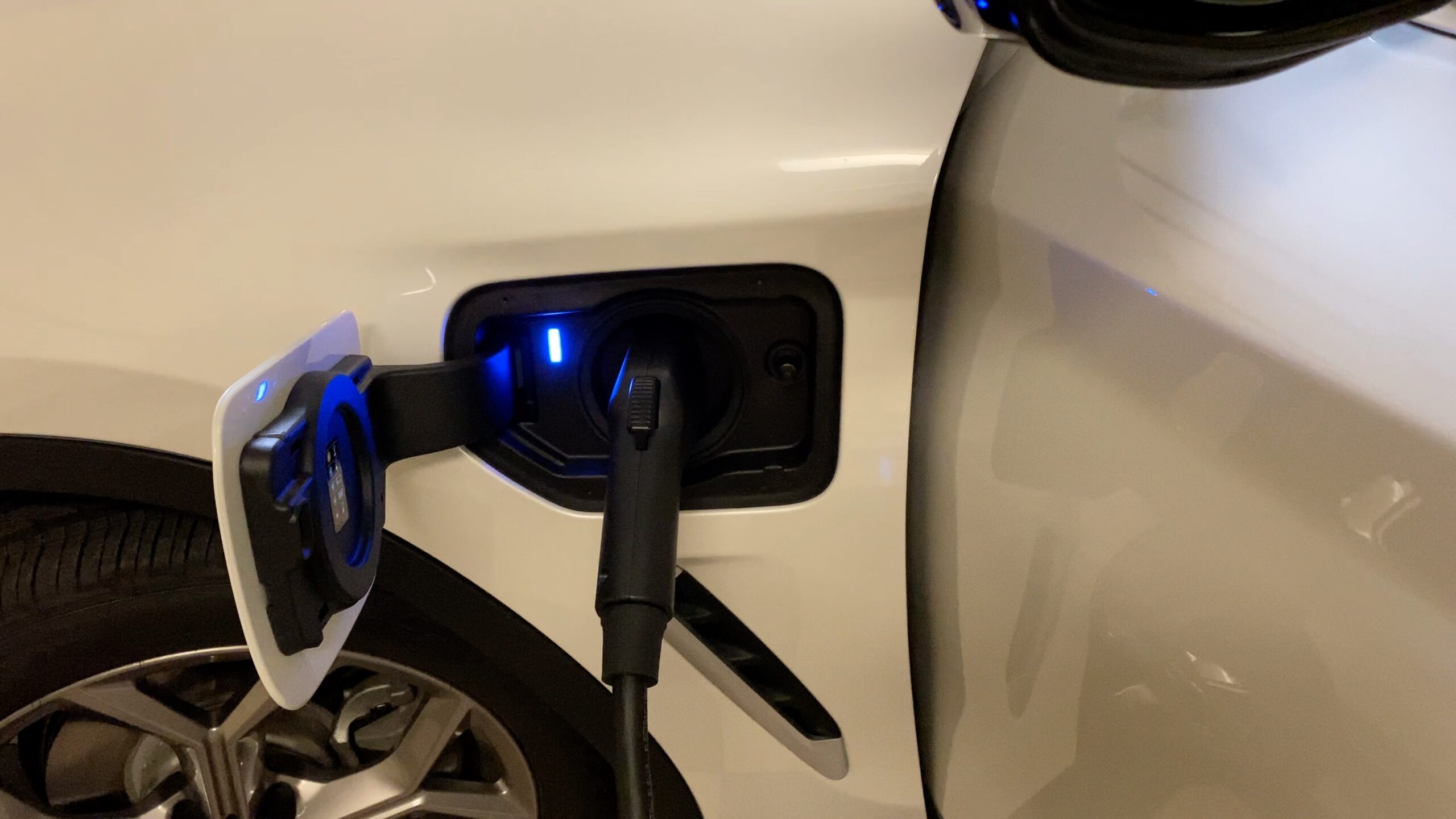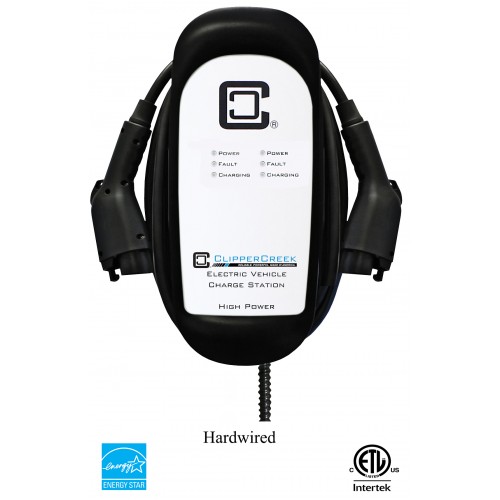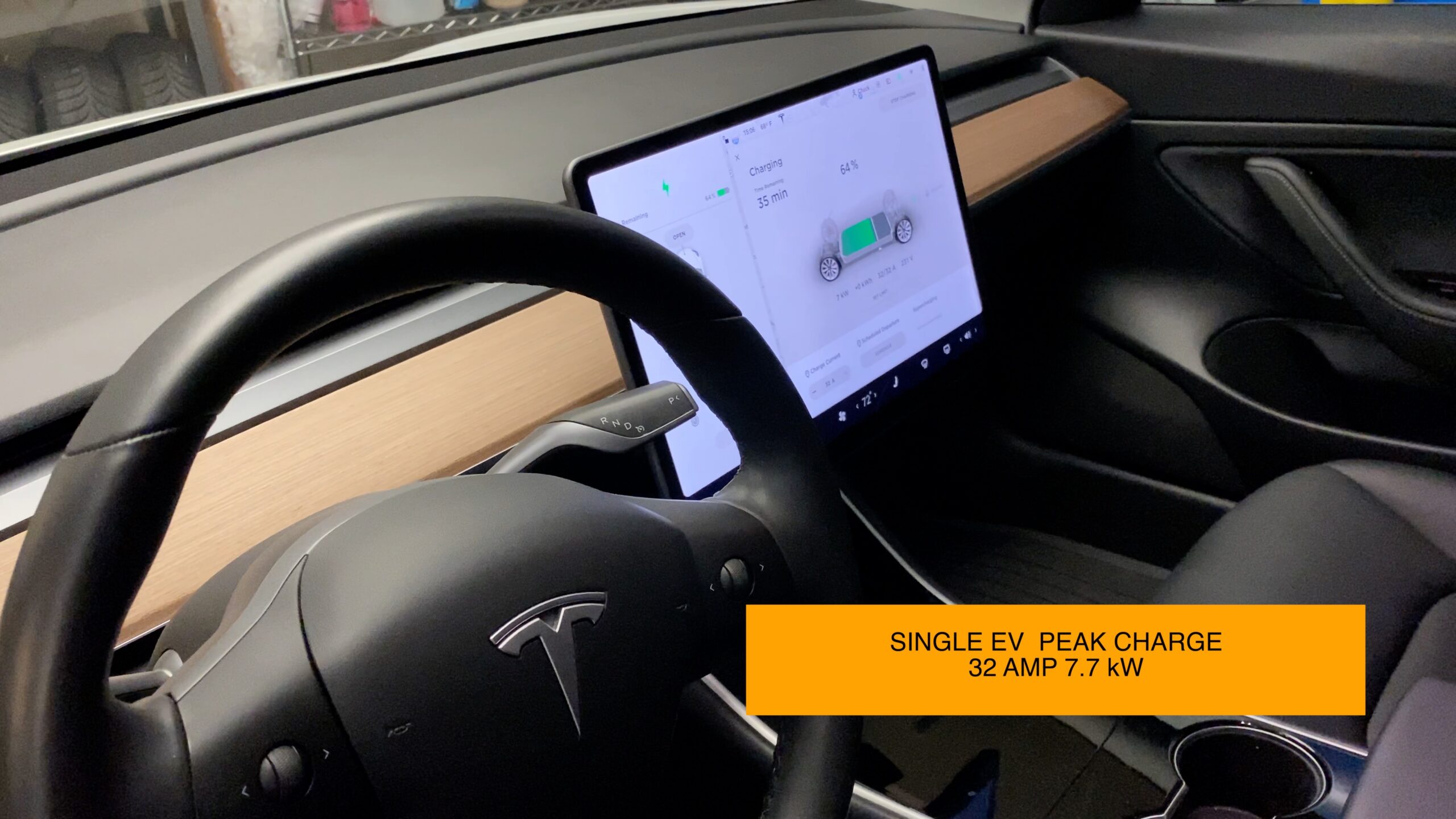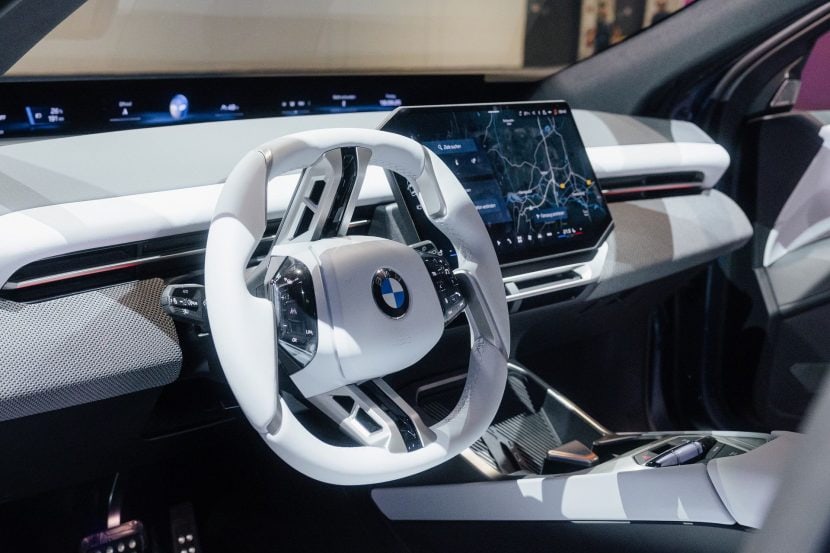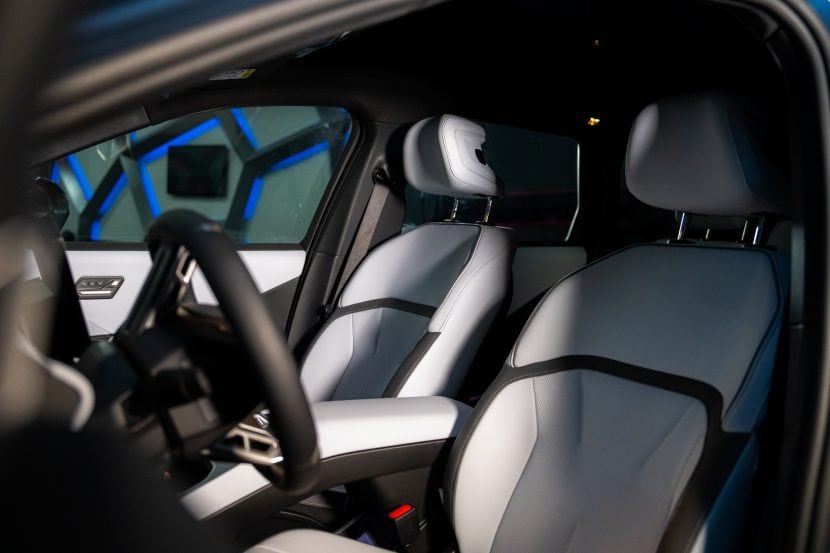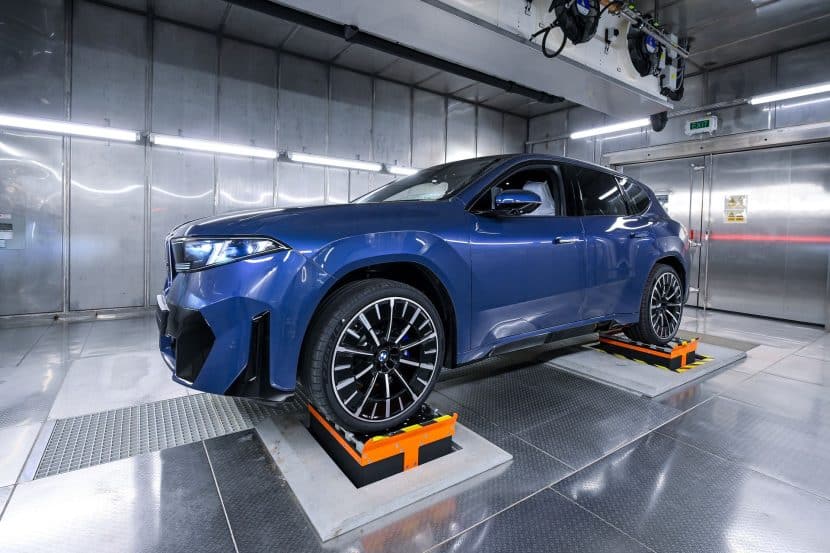As electric and plug-in hybrid vehicles become more prevalent, it is not uncommon for a single household to have more than one vehicle that needs charging. Enter ClipperCreek’s HSC-D40 Dual Charging Station. This is a charger that is hooked up to a single circuit and can charge two electric cars simultaneously. It comes equipped with two 25 foot cables and two J1772 Chargers. It has the ability to smartly sense and divide the charge equally if both cars are calling for a charge. Or it can send the full power to one if only one EV is calling for a recharge.
Why Would I Need One?
We managed quite well with one charger for two electric vehicles. Recently, however, when we added a 3rd plug-in vehicle, a BMW X3 xDrive30e, and we needed to look for a better charging solution. We reached out to ClipperCreek and they sent us the HSC-D40P for review. We were also able to order one that utilizes our existing NEMA 14-50 plug, so no calls to the electrician. Alternatively, the ClipperCreek HSC-D40P can be ordered in a hardwired or NEMA 6-50 plug configurations.
The two electric vehicles we charge are a 2018 BMW i3s and a 2018 Tesla Model 3 Performance. To date, we have over 87,000 of pure EV mile driving. The fascinating part of the Tesla is that it shows you exactly how much energy you are charging where as the BMW i3 will just show when it’s fully charged. When I charge the Tesla by itself, it will pull 32amps/7.7kW on our 40 amp circuit. When you plug a second vehicle in simultaneously the ClipperCreek unit will split the current equally among the vehicles and do 16 amps to each.
Typically we will plug in both EV’s in when we get home in the evening. We have the BMW i3 set to charge immediately when it gets plugged in and then we have the Tesla set to charge early in the am. Though both are plugged in, only the 2018 BMW i3s is requesting a charge so it gets charged at 32amps. The i3 charges fastest as it has the smallest battery at 33 kWh vs about 75kWh battery for the Tesla Model 3.
Then early in the morning when the Tesla calls for its charge, it also gets 32 amps, as the BMW i3 is fully charged and no longer charging. The benefit for us is that at night we don’t have to run down to the garage and switch the charging head from one car to the other.
Dual-Charging Stations Will Become The Norm
We have lived with an HSC-D40P for going on our second month. Most importantly, as we are going into the snow and winter season, I am extremely grateful for the ability to have two EVs plugged in at the same time. The real benefit of this is the ability to precondition off before we head to work. Preconditioning uses the electricity from “shore,” aka your charger to heat the car and the battery pack instead of using electricity from your battery pack of the vehicle.
ClipperCreek also sells a 50 amp circuit version, the HSC-D50. Both are sold with either a NEMA 14-50 plug, 6-50 plug or can be hard-wired. Both are great for a commercial application where two electrified cars need to be charging at once. It also works well for families like mine where we have multiple plug-in vehicles. Furthermore, it can be used in either a residential or commercial application.
Should I Buy One?
The ClipperCreek HSC-D40 is the ultimate convenience for multiple EV families. I didn’t realize how nice it was to plug in both our cars at night after work. No more, “Oh I forgot to move the charger” from one EV to the other mornings. The other benefit for those of us in the snow belt is that we can both precondition/preheat our cars at the same time in the mornings without arguing over who needs the charger more.
Lastly, the ClipperCreek unit was more expensive at $1349 than a single car charger but is far less than having to upgrade my entire electric panel and run a second plug to accommodate two chargers.
For a detailed video review watch here:


